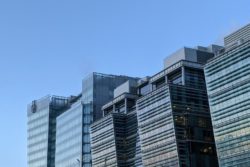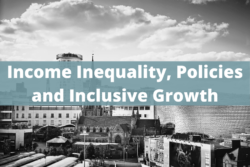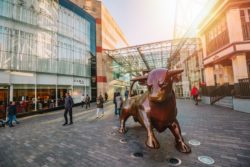Professor Simon Collison discusses how city-regions need to build a straightforward narrative that captures why people and businesses would want to visit, live, work, invest and commit to that particular place. Place branding and local leadership is often focused on promoting inward investment around clusters of economic activity, which can contribute to regional economic growth … Continue reading “Regional Clusters: Place Branding for the Co-Location of Firms”
Category: Economics
Spring Statement 2022
Alice Pugh takes a look at the Spring Statement 2022 and examines what impact it will have on the cost of living crisis. Summary of Announcements Fuel Duty cut by 5p per litre The removal of VAT on the installation of energy efficiency materials An additional £500m for the Household Support Fund The point at … Continue reading “Spring Statement 2022”
A Spotlight on the Øresund Bridge, Denmark and Sweden
Gina Coe looks at the experiences of investing in infrastructure, specifically the Øresund Bridge situated in the Øresund Region, to address regional inequality. Infrastructure investment can boost a region’s economic growth in the short-, medium-, and long-term, as well as working to address regional inequalities and disparities in outcomes. The blog shines a brief spotlight … Continue reading “A Spotlight on the Øresund Bridge, Denmark and Sweden”
Income Inequality, Policies and Inclusive Growth
Dr Maryna Ramcharan discusses her new report examining income inequality in the UK at a regional level with a particular focus on the West Midlands. Visit the project page and view the report – Income Inequality, Policies and Inclusive Growth The UK has a very high level of income inequality compared to other countries. Income … Continue reading “Income Inequality, Policies and Inclusive Growth”
COVID-19 Recovery: Birmingham Cannot Miss the Opportunity for a Restart
Tasos Kitsos and Raquel Ortega-Argiles discuss some of the key factors that need to be overcome in Birmingham to continue its economic recovery in the post-COVID era. This blog post was produced for inclusion in the Birmingham Economic Review for 2021. The annual Birmingham Economic Review is produced by the University of Birmingham’s City-REDI and … Continue reading “COVID-19 Recovery: Birmingham Cannot Miss the Opportunity for a Restart”
The Regional Economic Contribution of Student Expenditure: Implications for Managing the COVID-19 Pandemic
In this blog, Tasos Kitsos discusses his recent publication “Universities, students and regional economies: a symbiotic relationship?” with André Carrascal-Incera and Diana Gutiérrez-Posada. This research is part of the City-REDI project “The Impact of Universities on Regional Economies“. What is the economic contribution of students in the regions they study? What is the impact of … Continue reading “The Regional Economic Contribution of Student Expenditure: Implications for Managing the COVID-19 Pandemic”
Four propositions for the Much-Anticipated Levelling Up White Paper
Will Rossiter, Anne Green and Rebecca Riley discuss new research that identifies a number of challenges for the upcoming Levelling Up White Paper. Recent research from City-REDI/ WMREDI at the University of Birmingham and Nottingham Business School at Nottingham Trent University on the geography and functioning of places and the institutions, practice and policies associated … Continue reading “Four propositions for the Much-Anticipated Levelling Up White Paper”
“The Game’s Gone”: Where is Football Going and Where Should it Go?
Hannes Read takes a look at the potential consequences of the decision of some of England’s top-flight football teams to attempt to break away from the Premiership to join a European Super League. This blog was first posted on the Birmingham Business School Blog. “The Game’s Gone” Those three words can describe pretty much anything … Continue reading ““The Game’s Gone”: Where is Football Going and Where Should it Go?”
Serendipity Doesn’t Have to Be Left to Chance
In the final blog of a series exploring the power of anchor institution networks, Conrad Parke discovers that what sometimes looks like serendipity is really intent. This blog was first published on the CLES website. You can view the other blogs below: Anchor Network Supply Chain Hub: A Proposal Anchor Institution Networks: One Idea, Many … Continue reading “Serendipity Doesn’t Have to Be Left to Chance”
Anchor Network Supply Chain Hub: A Proposal
The third blog in a series blog exploring the mechanisms for anchor institution networks to deliver on their aspiration to create and reinforce local economic ties. Read part one and part two. Conrad Parke details the thinking behind a proposal to create a supply chain hub to service the Birmingham Anchor Network. This idea is covered in … Continue reading “Anchor Network Supply Chain Hub: A Proposal”










